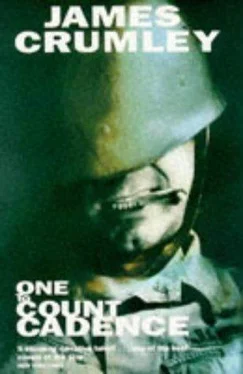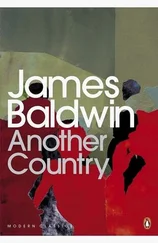James Crumley - One to Count Cadence
Здесь есть возможность читать онлайн «James Crumley - One to Count Cadence» весь текст электронной книги совершенно бесплатно (целиком полную версию без сокращений). В некоторых случаях можно слушать аудио, скачать через торрент в формате fb2 и присутствует краткое содержание. Жанр: Триллер, на английском языке. Описание произведения, (предисловие) а так же отзывы посетителей доступны на портале библиотеки ЛибКат.
- Название:One to Count Cadence
- Автор:
- Жанр:
- Год:неизвестен
- ISBN:нет данных
- Рейтинг книги:3 / 5. Голосов: 1
-
Избранное:Добавить в избранное
- Отзывы:
-
Ваша оценка:
- 60
- 1
- 2
- 3
- 4
- 5
One to Count Cadence: краткое содержание, описание и аннотация
Предлагаем к чтению аннотацию, описание, краткое содержание или предисловие (зависит от того, что написал сам автор книги «One to Count Cadence»). Если вы не нашли необходимую информацию о книге — напишите в комментариях, мы постараемся отыскать её.
One to Count Cadence — читать онлайн бесплатно полную книгу (весь текст) целиком
Ниже представлен текст книги, разбитый по страницам. Система сохранения места последней прочитанной страницы, позволяет с удобством читать онлайн бесплатно книгу «One to Count Cadence», без необходимости каждый раз заново искать на чём Вы остановились. Поставьте закладку, и сможете в любой момент перейти на страницу, на которой закончили чтение.
Интервал:
Закладка:
"What?"
"I said, 'Of course, I remember,' you asshole."
"Yeah," I said.
"Everytime. Shit, I remember even better drunk than sober. Remember everything. I just can't stop myself, at all. Just like that night. I remember those delicious fat titties, wet and stinking of beer. I wallowed in flesh, then whetted myself on bone, bony thin Rita, and I saw what those dumb farmers were doing to Jack. And I cheered them on. I knew what I was doing, but I just couldn't stop. I guess I didn't even want to stop. And then I always lied that I didn't remember. Ashamed, I guess. Like tonight. Shit," he said, "I don't know what's wrong with me." He seemed near tears. I didn't want to see him cry.
"Don't you know that's what being drunk is, Joe?" I said. "Don't you know?"
"What?" he said, half angry, perhaps at the simple answer.
"To be drunk is to be out of control. Sometimes the good part of a man gets out of the cage, sometimes the bad, man. Didn't you know that?" I tried to explain, to sooth, but he was too long convinced of his guilt, irrevocable guilt. Though we talked till daylight, gray morning, mist, and fog; I could still see the sadness deep in his dull, red-cracked eyes. Understanding, slow yet as sure as the sun slaying the mist, crept heavily into me… and I resolved, in spite of himself, in spite of myself, to save him.
I fell to conniving that morning. First I tried Tetrick.
"No," he said, when I asked him to speak to Dottlinger again about Morning's discharge. "No. And don't you. After that stunt the other night, after last night – yeah, I heard about last night – he's hanging himself."
"Maybe that's why we should help?"
"I've got seventy-five other men to help, men who don't give me trouble all the time. You got nine other men, and Morning is going to get his shit on them one of these times. I'm sorry that he has to go this way, but I'm not sorry to see him go. He's been trouble from the beginning. The first night he's in the Company, I go to Town and find him in Esting's, and he smiles at me and says 'Hi, sarge,' as if I hadn't told him that same morning that he couldn't go to Town for fifteen days. I still haven't found out how he got off base. Even I spent fifteen days on base before I got a pass. But not him. Rules are for other guys, not him. I won't miss him. Neither will you. He's already got you in crap once. He'll do it again. He's not worth the effort; he'll turn on you. He's not." Tetrick punctuated his "he's not's" by slapping his bald head and stomping his feet under the desk. "Ahh," he groaned. "This damned rain is killing my feet."
"Maybe I'll just walk in and kick Dottlinger's head in."
"Don't make troubles for me. I don't need them. Sgt. Reid didn't show up for work again this morning. Twice this week already. Once more and I'll have the Operations officers down here bitching at me again."
"I can't let it sit. I've got to do something. It's all wrong."
"Now you're talking like him. Leave it alone. Don't make waves for yourself. He's not worth it."
"Maybe not."
"What?"
"Nothing. Nothing. See you."
I left with, as the saying goes, a germ of an idea, though it turned out to be a disease, a plague on both our houses.
It cost me thirty dollars (because I didn't have ten cartons of Salems, fastest moving menthol cigarette on the black market) and a whole tired afternoon listening to Dominic stomp his peg leg against the Plaza bar to make points about his experiences in the Spanish Civil War. He told a fair account of the coming of the revolution to his small town: guardia civil executed kneeling against a wall, Fascists clubbed and beaten over a cliff by a mob of drunks, a priest reaped with sickles. But I'd heard it before. I paid the price and in return received a solemn beery pledge from Dominic, on his honor and faith as a stout member of the revolution, on the soul of his leg buried in a nameless Spanish grave, that he would take prompt, decisive action, and send the evidence by way of my houseboy.
I heard nothing for a week. Morning stayed away from me, and when work forced us together, he avoided talk, feeling, I assume, that he had talked too much already. He was odd that way. He had a compulsive need to confess, and often expounded on the need for complete honesty in human relations, love, friendship, etc., but after the kind of confidence which he claimed drew people closer, he always drew away again. But finally the manila envelope appeared crinkling under my pillow, and I quickly spilled the 8x10s on my bunk, half in fear, half in excitement.
There they were: Sgt. Reid and his skinny wife in their bed. Damn Dominic's fumbling one-legged idiot soul. Reid looked as he always looked, as if he didn't exactly know what was happening. His wife seemed to know precisely what was going on, but she was looking at her husband, her head cocked like a setter bitch, as if wondering, trying to remember who she had climbed into bed with this time, or perhaps wondering what her husband was doing in her bed. She had a sullen, sly face in the glossy print. A thin, pouting face probably a great deal like the face of Morning's Rita Whitehead. A thin Scotch-Irish build, a bony small frame so common in the South (as if poverty had its own special gene), hair tangled in rats' nests, small breasts with long, almost stringy nipples – I didn't see what Dottlinger quite saw in her but, of course, nor did I understand what she saw in that bastard; except perhaps a congenital attraction to bastards.
The three other pictures exhibited a bit more diligence and imagination on Dominic's part. It made me sick. Dottlinger and Reid's wife were chemically locked in that most compromising of love's positions, known in the idiom as 69. I'd seen blue movies, stag films, before, but always drunk, and now I knew why. Love is private, and whatever its motives or methods, it deserves that privacy. The thought of how confused and dazed Reid must have been, caught in his own bed by blackmailers, was bad enough, but Dottlinger's exposure somehow touched a more tender wound. I marveled that he had both the imagination and guts to love a woman that way (for it does take imagination and guts for a Southern boy: the term "cock-sucker," certainly a vile implication across America, in the South refers not to fellatio, but cunnilingus, linguistically). Then the terrible thought came: what if they really were in love, star-crossed lovers? and Dominic intruding with a dirty foot, my man against love? Party myself to accidental evil, I almost threw the photographs away. I did tear Reid's candid shot and the negative into bits, but I was a blackmailer with a mission and, saying "The greatest good for the greatest number," I was on my way, telling myself, as one must in this sort of affair, "Don't force the rat into a corner; leave him room to negotiate." I thought I might begin by asking for his resignation in exchange for the negatives, and work from there… But then I laughed, a smothered giggle, a belch, then a roar. I stumbled back to my room and, laughing harder than I had in months, burned the prints and the negatives and the manila envelope. (I must admit that I took another look at the pictures which, as I remember, I laughed at tenderly, delightedly.) Fire and laughter and a bit of madness saved me from being both fool and martyr (and Morning).
I went to the Provost Marshal's Office and found a smart Dartmouth lawyer serving his time with a wry smile and a wonderful ability to beat courts-martial. I explained, with some slight exaggeration, Morning's plight, and within the hour he had called Dottlinger, quoted some legal, Latin nonsense to him (I think I overheard Illegitimi Non Carborundum; I hope so), and Dottlinger dropped the whole idea the same day. (Morning I saved, but incidentally loosed two more idiots on the world. One later made it to Leavenworth anyway, but the other went straight. Two out of three will get a fellow out of the Sally League any season.) Morning acted his part with mock sadness, I with mock humility; but he spoke to me again.
Читать дальшеИнтервал:
Закладка:
Похожие книги на «One to Count Cadence»
Представляем Вашему вниманию похожие книги на «One to Count Cadence» списком для выбора. Мы отобрали схожую по названию и смыслу литературу в надежде предоставить читателям больше вариантов отыскать новые, интересные, ещё непрочитанные произведения.
Обсуждение, отзывы о книге «One to Count Cadence» и просто собственные мнения читателей. Оставьте ваши комментарии, напишите, что Вы думаете о произведении, его смысле или главных героях. Укажите что конкретно понравилось, а что нет, и почему Вы так считаете.












